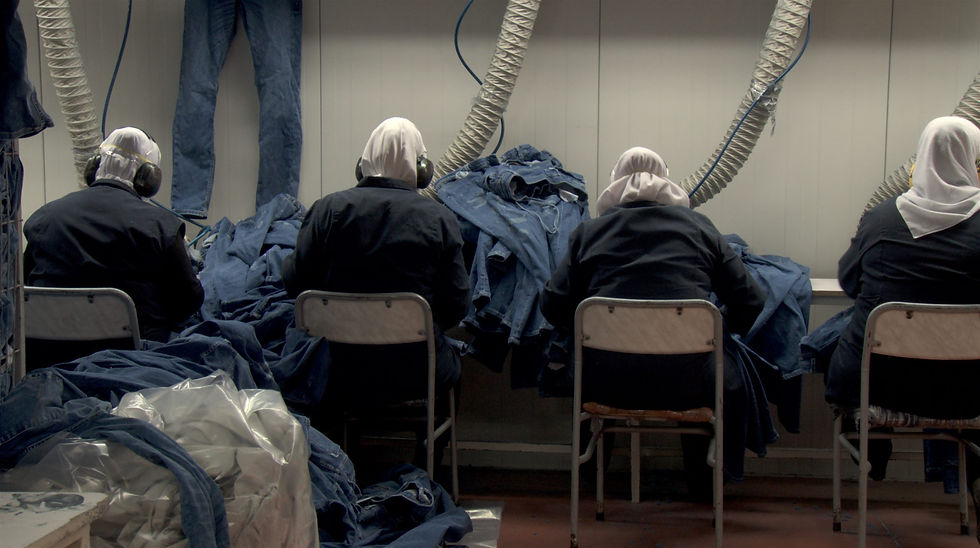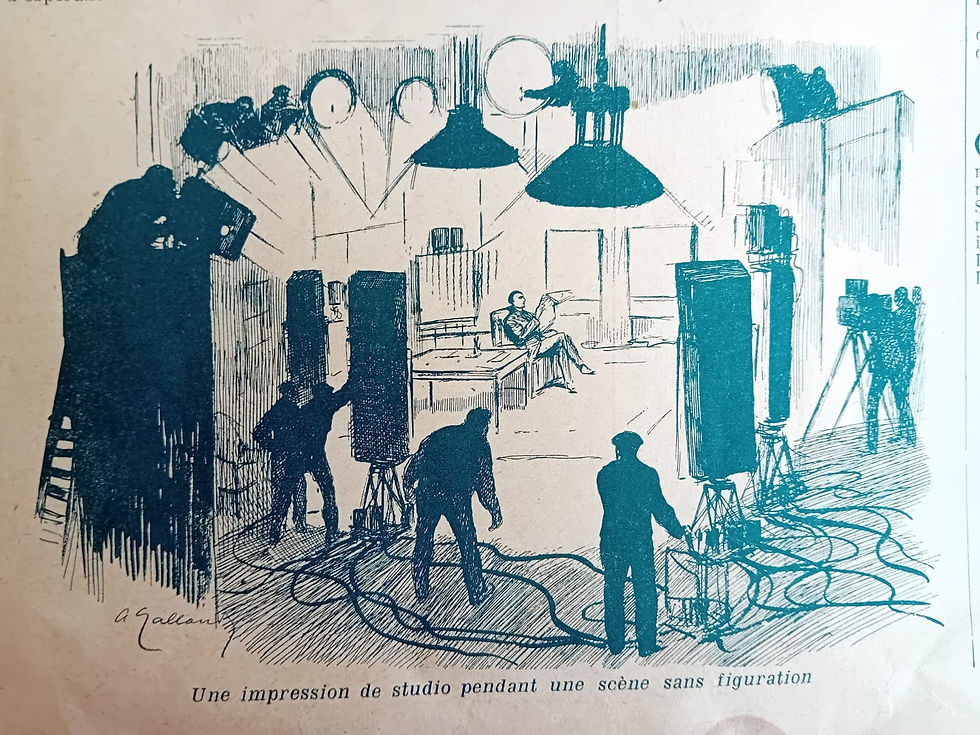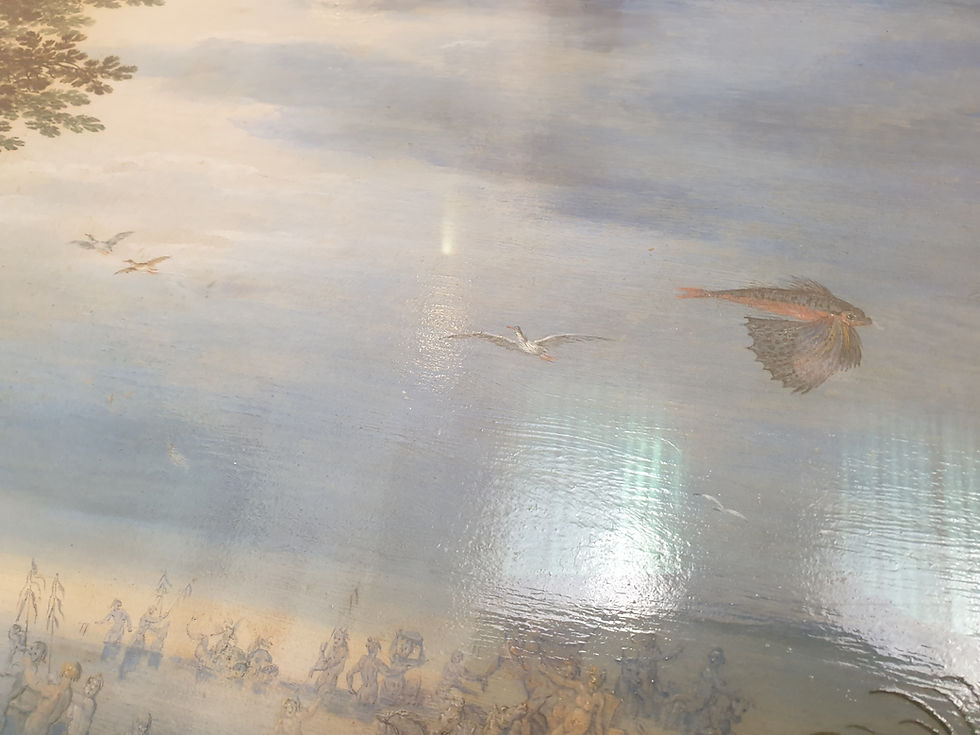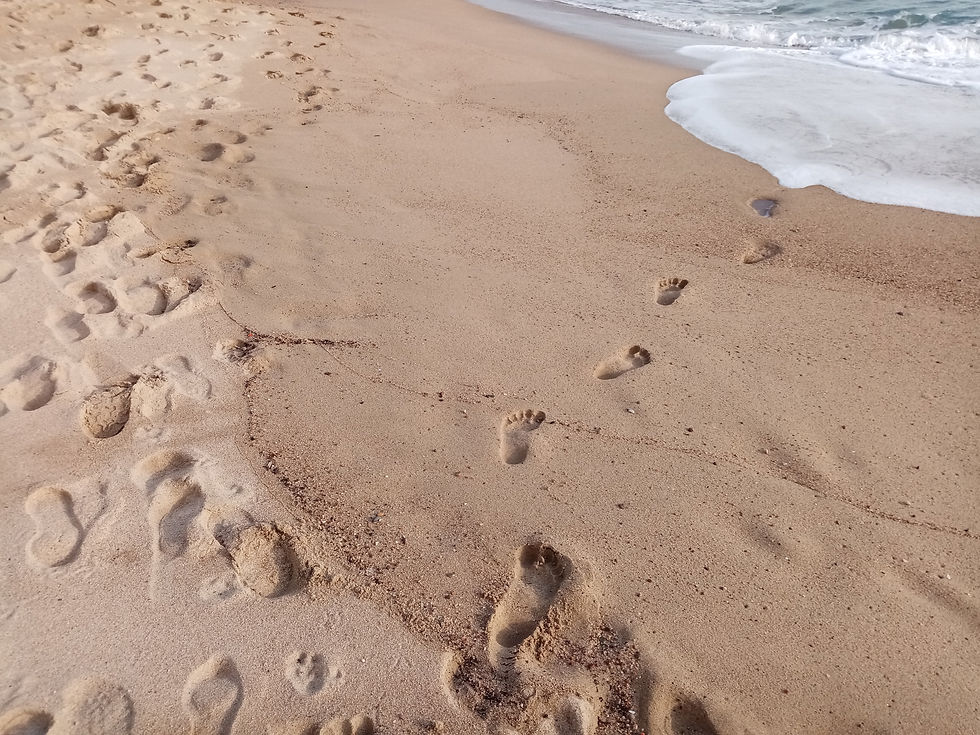TENDER IS THE SIGHT
- Marina Drozdova

- Sep 13, 2022
- 5 min read
FIDMarseille is Europe’s largest documentary film festival and, likely, France’s leading documentary event. The July heat, no doubt, expands spectators’ minds.
The festival programming in Marseille is phenomenal — and incredibly appealing to lay audiences as much as professionals. Traditionally, the festival attracts films with unpredictable plots and structures. Radical artistic ideas. Creative risk and audacity. Perhaps the most poetic lineups of all European screenings.
Région Sud Provence-Alpes-Côte d’Azur is one of the festival’s regular partners.
FIDMarseille features three distinguishing traditions of documentary filmmaking: hybrid, impressionistic, and literary.
Hybrid
The first and principal facet of the festival’s selection and programming is known as “Hybrid documentaries.” Although not new, the term “hybrid documentaries” has gained pertinence today. “Hybrid documentaries” is a diverse mix of filming and narrative methods aimed at capturing external and internal flows of life. Especially internal — fantasies, thoughts, ideas, obsessions. This includes traditional approaches — observation, provocation, testimony — as well as fictional episodes, fine art techniques, and conjectures in mocumentary genre. As author Luke Moody wrote at 11Polaroids platform, the hybrid could also mean moving between “[o]bservation and instigation, life and art, the actual and possible, translation and interpretation, presence and performance, construction and deconstruction, evidence and [hearsay], authorship and plagiarism, meaning and abstraction.”
The jury, headed by French director, Mati Diop, awarded the main prize — Grand Prix of the International Competition — to the absolutely deserving feature, The Unstable Object II, by U.S. director, Daniel Eisenberg (a joint production of France, Germany, Türkiye, and USA).
The film continues the director’s metaphysical observation of the world of labour which he initiated in 2011 by way of The Unstable Object. The camera travels inside three places: a workshop in Germany where we follow the fabrication of a prosthetics; a glove factory in Millau, in the south of France; and a jeans factory in Istanbul. Three parts — total duration of 204 minutes.
The Unstable Object II is a sort of cinematographic Boléro: a hypnotic absence of any developing action. In contrast to Ravel’s musical solution, however, there is no crescendo. Conversely, everything apparently exists within the sound of one note, lacking physical and emotional tension. The camera’s view is alert and phlegmatic — soon it seems that the workers’ ordinary occupational movements have choreography of their own. Indeed, this cinematic storytelling hypnotizes. Its philosophical meaning is to behold and savor the stability that is minutely created by the efforts of producing the necessities of life.
Impressionistic
The second typical trend of the festival is to showcase impressionistic documentaries, concentrated exclusively on the nuances of an individual’s inner life. An ideal example: the film On a eu la journée bonsoir (“We had the Day Bonsoir”) by Narimane Mari (France), which received the main national award — Grand Prix of the French Competition.
Narimane Mari makes a film about her beloved partner, Michel Haas, a philosopher, novelist, artist. The genres here have no boundaries — rather, a scandalous pedestrian provocation merges with a scurry of credits (names run around window curtains, dancing out their esoteric meanings), with scene cuts meant as metaphors, and with formal interviews. The result is as poetic as a universal shopping basket or a nod to Nouveau réalisme in art, which had proclaimed a new approach to perception of the real back on October 27, 1960. Total poetic detachment and permissiveness in mixing genres make this cinematic narration exquisite.
Literary
The festival’s third distinctive tradition favors films that incorporate classical literature into the fabric of everyday life. The film Signal GPS perdu (“GPS Signal Lost”) by Pierre Voland (France, Belgium) — which won the Special Mention of the jury — offers an ideal illustration. Signal GPS perdu combines a twelfth-century text, Lancelot, le Chevalier de la Charrette (“Lancelot, the Knight of the Cart”), by Chrétien de Troyes, with anonymous modern GPS messages — letters graphed upon the background of woodland landscapes (of the Jura province in eastern France), where medieval knights had wandered once upon a time, and where modern hapless youths roam today. Pierre Voland’s film lacks such a convoluted plot as in the romance about the knight Lancelot, but it is likewise a poem. A poem about accessibility — or inaccessibility? — of an ideal; about how discernible an ideal could really be. What a daring quest through a millennium.
Notably, the subject of pensive knights, who fight not only the world but also their own armor, appeared in one more of the festival’s films — Lucie perd son cheval (“Lucie Loses her Horse”) by Claude Schmitz (France, Belgium). The film describes some scatterbrained theatrical actresses, who fall asleep during rehearsal — and turn up in delightful company of troubadours. The film won the prize of French National Association of Experimental Cinema.
The festival’s most charming film is X14 by Delphine Kreuter (France). The movie is a nervous reportage from a Parisian suburb high-rise, where a youngish female, Liz, lives with her cat and her ‘neighbor’ — a robot or cyborg. Named X14, he mostly does housework — laundry, cleaning, basic entertainment for his lady. As all of us, he constantly gets exhausted — but his energy problems are literal: batteries drain fast and he needs to plug in. Life seems so mundane: tragic and amazingly aimless — as is the film. Yet the film radiates some wondrous modernity. Perhaps, this is because it shows so astutely people’s utter dependence on gadgets — our lamentable yet clingy technological ‘vampirism.’
The full list of winners is as follows:
International Competition
Grand Prize
The Unstable Object II — Daniel Eisenberg (France/Germany/ Türkiye/USA)
International Georges de Beauregard Prize
The Unstable Object II — Daniel Eisenberg
International Georges de Beauregard Prize — Special Mention
Life Lasts Two Days — Leonardo Mouramateus (Brazil)
French Competition
Grand Prize
We Had the Day Bonsoir — Narimane Mari (France)
National Georges de Beauregard Prize
Barail — Denis Cointe (France) (medium-length work)
National Georges de Beauregard Prize — Special Mention
GPS Signal Lost — Pierre Voland (France/Belgium) (medium-length work)
First Film Competition
Best First Film
Christina — Nikola Spasic (Serbia)
Special Mentions
Person — Wang ChuYu (China)
Dying In Ibiza (A Film in Three Summers) — Anton Balekdjian, Léo Couture, Mattéo Eustachon (France)
CNAP Competition
CNAP Competition Prize
We Had The Day Bonsoir — Narimane Mari
Special Mention
A Woman Escapes — Sofia Bohdanowicz, Burak Çevik, Blake Williams (Canada/ Türkiye)
Flash Competition
Flash Competition Prize
Sappukei — Chun Wang and Hikky Chen (Taiwan) (short film)
Alice Guy Award
I Give My Heart a Medal for Letting Go of You — Danielle Arbid (France) (short film)
National Association of Experimental Cinema (GNCR) Prize
Lucie Loses Her Horse — Claude Schmitz (France/Belgium)
Renaud Victor Prize
The Arc — Amira Louadah (Algeria/France) (short film)
Marseille Best New Hope Prize
Dying In Ibiza (A Film in Three Summers) — Anton Balekdjian, Léo Couture, Mattéo Eustachon (France)
European High School Students Award
Dying In Ibiza (A Film in Three Summers) — Anton Balekdjian, Léo Couture, Mattéo Eustachon (France)
Air France Audience Award
Dying In Ibiza (A Film in Three Summers) — Anton Balekdjian, Léo Couture, Mattéo Eustachon (France)
FIDLab (Co-Production Platform)
Air France Prize
The Christmas Cars — Lucy Kerr (USA)
Casa de Velásquez/ECAM Award
Neverland — Isabel Pagliai (France)
Municipality Film Award
Following the Sound — Kyoshi Sugita (Japan)
Culori Prize
Echo — Joshua Bonnetta (Canada)
Camargo Foundation Prize
Se van sus naves — Óscar Vincentelli (Venezuela/Spain)
Kodak – Silverway Prize
All the Renaults in the World — Declan Clarke (Ireland/Germany)
Mactari Prize
Bamboo Flower — Kiyé Simon Luang (Laos/France)
Micro Climat Studios Prize
MMXX — Cristi Puiu (Romania)
Providenza Prize
The Night Came About — Mira Adoumier (Lebanon/The Netherlands)
Sublimages Prize
The Seasons — Maureen Fazendeiro (Portugal/France)
Pocket Video Prize
I Look Like My Mother — Amina Maher (Iran/Germany)
Docs Alliance Prize
The Seasons — Maureen Fazendeiro (Portugal/France)
Nebulae/Doclisboa Prize
Bamboo Flower — Kiyé Simon Luang (Laos/France)




Comments